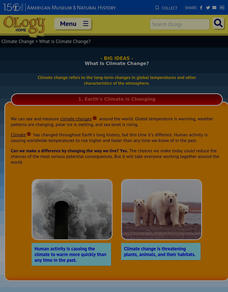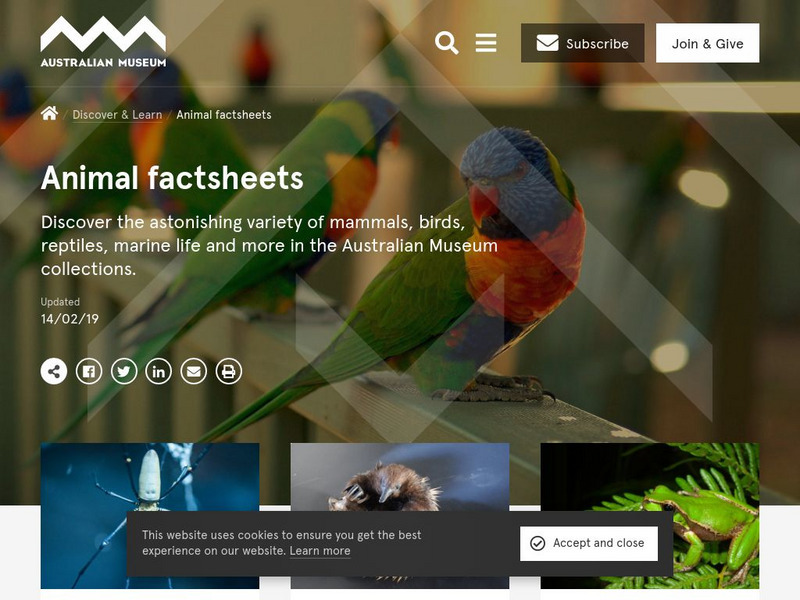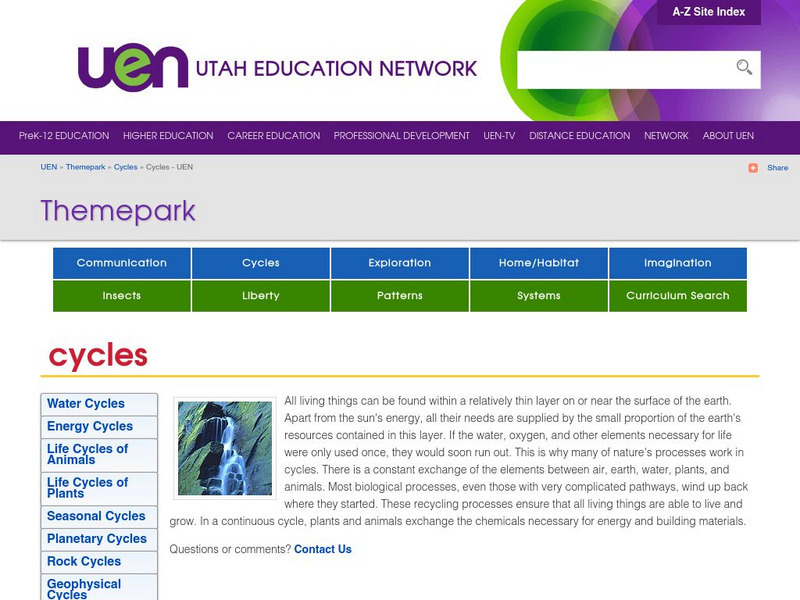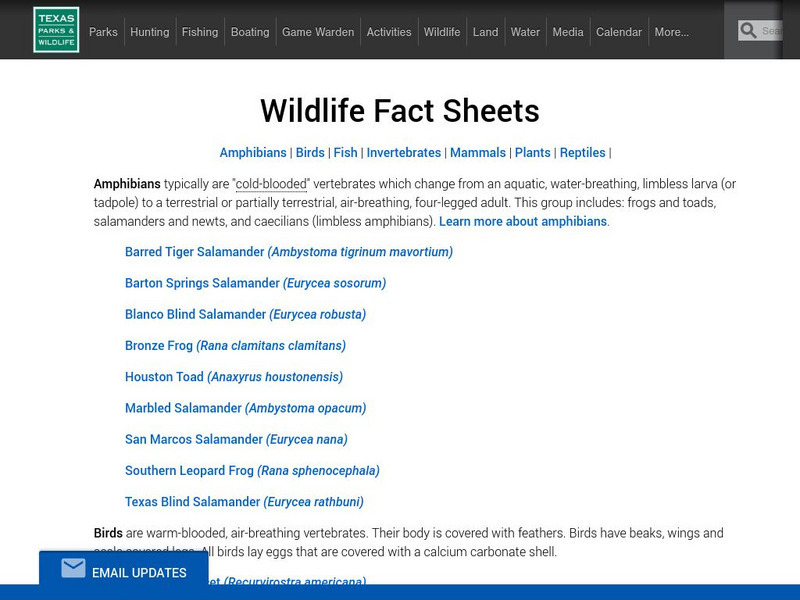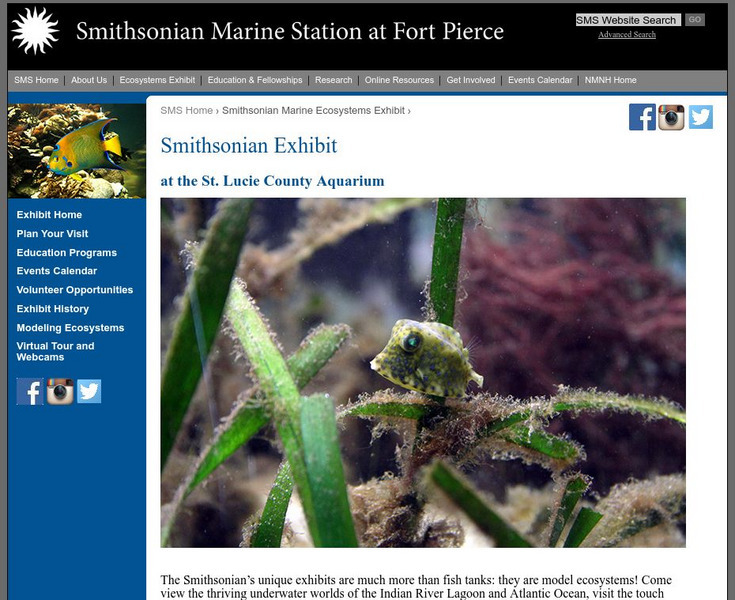American Museum of Natural History
What's the Big Deal About Water?
It may seem simple, but water is one of the most unique substances on Earth. An interactive online lesson describes its properties and importance in so many different situations. Learners interact with the lesson to learn the role water...
American Museum of Natural History
What's This? Feeding
Some species have pretty creative methods for catching food. Young scientists learn about some interesting ways organisms get the nutrients they need by navigating an online interactive lesson that would be suitable for a remote learning...
American Museum of Natural History
Bio-Benefits
Kick-start a discussion of the importance of biodiversity with a colorful resource that touts the benefits of maintaining healthy ecosystems. The images stress the interdependence of all the elements of an ecosystem.
American Museum of Natural History
What Is Climate Change?
So many factors show that climate change has arrived. Learners read through an online resource that explains the data and the consequences of climate change. They also review strategies for slowing or even reversing the global influence.
American Museum of Natural History
What's the Big Deal About Paleontology?
Paleontologists could be considered detectives of the past. A quick online lesson describes the science of paleontology and the importance of fossils. Young scientists read about how paleontologists analyze the features of fossils to...
Australian Museum
Australian Museum: Animals
This online site for the Australian Museum introduces the nature and culture of this unique continent. This particular section focuses on the creatures of Australia including spiders, fish, birds, reptiles, mammals, insects, frogs,...
Other
Protect Your Waters: Non Native Species Impacts
This site offers a complete explanation of how invasive animals and plants impact many of the different things valued by Americans. The economic impact is enormous and estimated to be about $100 billion dollars per year.
Other
Florida Department of Environmental Protection: Life in a Spring
Learn all about the diverse species that live in the Florida Springs. Separate sections for fish, reptiles and amphibians, birds and mammals, insects and invertebrates, and plants.
Utah Education Network
Uen: Themepark: Cycles
This is a large collection of resources on cycles of nature and the Earth. There is a constant exchange of the elements between air, earth, water, plants, and animals. Most biological processes wind up back where they started. These...
Smithsonian Institution
National Museum of Natural History: Ocean Planet
Detailed website that was a companion to a 1995 traveling exhibit of the Smithsonian. Links to lesson plans and other educational materials are at the bottom of the page. Enter the exhibition to explore the world of the ocean.
Texas Parks and Wildlife
Texas Parks & Wildlife Department: Wildlife
Here you will find a description of many types of wildlife species living in Texas. Clicking on the underlined words will direct you to links to related topics. Browse through the website (land and water) to discover aquatic species and...
US Geological Survey
U.s. Geological Survey: The Usgs and Science Education
"Explore things on, in, around and about the earth," with this web site dedicated to K-12 education from the United States Geological Survey. Homework help, science topics and fun learning games for students in Kindergarten through High...
Smithsonian Institution
Smithsonian Marine Ecosystems Exhibit
Take an online tour of the Smithsonian's "Exploring Marine Ecosystems" exhibit. Learn about coral reefs and look behind the scenes as scientists maintain the model ecosystems.



